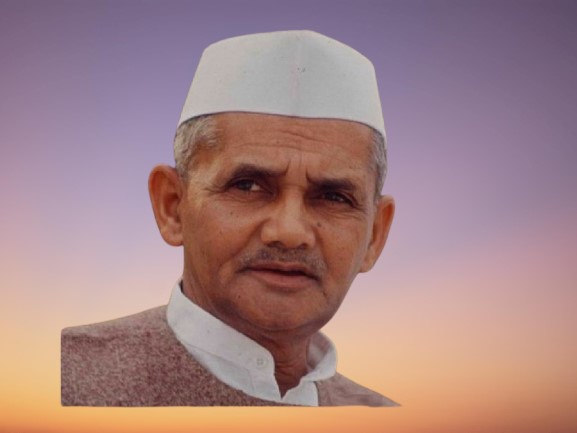Table of Contents
ToggleGandhi Shastri Jayanti: 2nd October 2023
Lets Celebrate the Legacy of Mahatma Gandhi and Lal Bahadur Shastri
Gandhi Shastri Jayanti is a day of profound significance in India, as it commemorates the birthdays of two great leaders who played pivotal roles in the nation’s struggle for independence and its subsequent development. Mahatma Gandhi, known as the ‘Father of the Nation,’ and Lal Bahadur Shastri, India’s second Prime Minister, are remembered not only for their contributions to the freedom movement but also for their unwavering commitment to peace, justice, and the welfare of the people. On this day, the nation comes together to pay tribute to these exceptional leaders and reflect on the values they stood for.
Mahatma Gandhi: The Apostle of Nonviolence

Sri Mohandas Karamchand Gandhi, popularly known as Bapu and affectionately called Mahatma Gandhi, was born on October 2, 1869, in Porbandar, Gujarat. He is hailed as one of the most influential figures in modern history due to his pioneering role in advocating nonviolent civil disobedience as a means to achieve political and social change. Gandhi’s philosophy of nonviolence, known as ‘Satyagraha,’ continues to inspire movements for social justice and human rights worldwide.
Gandhi’s life was marked by a relentless pursuit of truth and justice. He led several mass movements against British colonial rule, such as the Salt March and the Quit India Movement, which mobilized millions of Indians in a united struggle for freedom. His commitment to nonviolence and his belief in the inherent dignity of every individual set him apart as a leader of exceptional moral character.
On this day, we remember Mahatma Gandhi’s tireless efforts to bring about political change through nonviolent means. His legacy lives on in India’s struggle for justice, equality, and peace.
Lal Bahadur Shastri: A Leader of Humble Beginnings

Lal Bahadur Shastri was born on October 2, 1904, in Mughal Sarai, a small town in Uttar Pradesh. Despite coming from a humble background, Shastri rose to become one of India’s most respected leaders. His dedication to the welfare of the common people and his commitment to simplicity and integrity earned him the title “Lal Bahadur,”
Shastri’s political career was marked by his unwavering commitment to the principles of Mahatma Gandhi, particularly his emphasis on self-reliance and the welfare of the downtrodden. He played a crucial role in India’s struggle for independence and later served as the Prime Minister of India from 1964 to 1966.
One of Shastri’s most memorable moments as Prime Minister was during the 1965 India-Pakistan war when he coined the famous slogan “Jai Jawan, Jai Kisan” (Hail the Soldier, Hail the Farmer) to boost the morale of the Indian armed forces and promote agricultural self-sufficiency. His leadership during a challenging time demonstrated his unwavering commitment to the nation’s well-being.
On this day, we pay tribute to Lal Bahadur Shastri’s humility, simplicity, and dedication to serving the nation. His legacy reminds us of the importance of leadership that prioritizes the welfare of the people.
Gandhi Shastri Jayanti: A Day of Reflection and Inspiration
Gandhi Shastri Jayanti is not merely a day of celebration but also an opportunity for introspection and inspiration. It reminds us of the values and principles that these two great leaders upheld throughout their lives.
- Nonviolence as a Path to Change
Both Mahatma Gandhi and Lal Bahadur Shastri believed in the power of nonviolence as a means to achieve social and political change. Gandhi’s philosophy of nonviolent resistance, or Satyagraha, continues to influence movements for justice and peace worldwide. Shastri’s commitment to resolving conflicts through peaceful means, even during the India-Pakistan war, serves as a testament to the enduring relevance of nonviolence in today’s world.
- Simplicity and Humility
Lal Bahadur Shastri’s life was a shining example of simplicity and humility. He led a modest life, emphasizing the importance of frugality and self-reliance. Shastri’s commitment to the welfare of the common people was reflected in his own lifestyle, which was devoid of extravagance. His legacy reminds us that true leadership is grounded in humility and a genuine concern for the well-being of the masses.
- Empowerment of the Marginalized
Both leaders were dedicated to the upliftment of marginalized communities. Gandhi championed the cause of the untouchables, advocating for their rights and dignity. Shastri’s policies aimed at reducing poverty and promoting social justice, ensuring that the benefits of development reached the most vulnerable sections of society. Their commitment to social equality serves as a timeless lesson on the importance of inclusive governance.
- Self-Reliance and Agricultural Development
Lal Bahadur Shastri’s slogan, “Jai Jawan, Jai Kisan,” encapsulates the idea that a nation’s strength lies in both its armed forces and its farmers. Shastri’s emphasis on agricultural self-sufficiency remains relevant in a world where food security is a global concern. It underscores the importance of sustainable agricultural practices and the need to support the agricultural sector.
- The Pursuit of Truth and Justice
Mahatma Gandhi’s unwavering commitment to truth and justice serves as a guiding light for individuals and movements dedicated to these values. His belief in the essential goodness of humanity and the power of truth to overcome injustice continues to inspire those who seek to make the world a better place.
Gandhi Shastri Jayanti is a day that celebrates the legacies of two remarkable leaders whose lives were dedicated to the principles of nonviolence, simplicity, justice, and service to the people. Mahatma Gandhi and Lal Bahadur Shastri’s contributions to India’s struggle for independence and their enduring impact on the nation’s development make this day a momentous occasion for reflection and inspiration.
As we commemorate Gandhi Shastri Jayanti, let us remember the timeless wisdom of these leaders and strive to embody their values in our own lives. In doing so, we honour their memory and contribute to the ongoing journey of building a just, inclusive, and peaceful society.
अहिंसा परमो धर्मः
जय जवान, जय किसान
Please send your suggestion/feedback to aksinhalko@gmail.com
